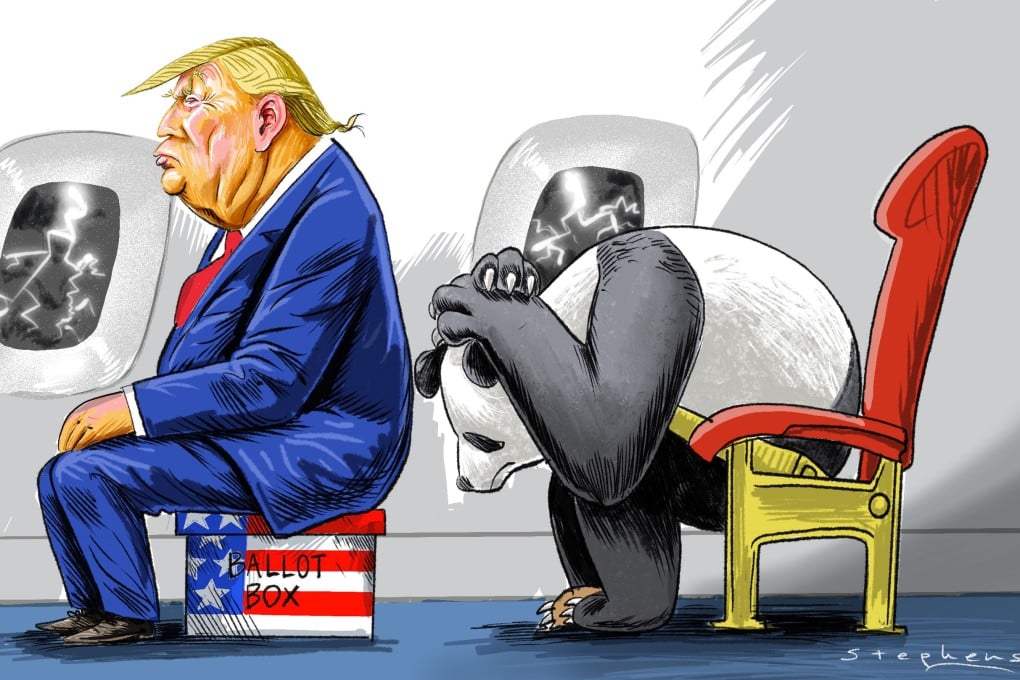Advertisement
Opinion | How China can best prepare for Trump’s return
- To counteract Trump’s caustic policies, Beijing must expand its multichannel diplomacy with the US, engage with the rest of the West in a more nuanced way, and regain its economic mojo
Reading Time:4 minutes
Why you can trust SCMP
6

The precipitous deterioration of Sino-US relations over the past decade has many structural causes – American elites’ angst over a rival economic power, widening US socioeconomic inequalities and hyper nationalism across both sides of the pond.
A key catalyst was Donald Trump. With his truculent, erratic and self-serving personality, the former US president initiated the Sino-US trade war, peddled Covid-19 theories to excoriate China, and was twice impeached, notably over the Capitol riots.
Storming to victory in the Iowa and New Hampshire primaries, Trump is miles ahead of any Republican rival. An NBC poll last month showed President Joe Biden trailing Trump and seen as particularly weak on economic and immigration issues.
It is high time Beijing began preparing for the unimaginable: Trump’s triumph. If elected, his China policy will most likely be steered by a team with a militant and confrontational “containment” outlook on China. Possible picks include senator Tom Cotton, who spearheaded the witch-hunt at the TikTok hearings, former secretary of state Mike Pompeo and ex-trade representative Robert Lighthizer.
Beijing’s recent flurry of diplomatic re-engagement with Washington is most constructive and needed for consolidating the gains from Biden’s meeting with President Xi Jinping last November. It also signalled China’s willingness to repair relations with the West – especially American and European businesses and investors, whose support Beijing counts on for economic recovery.
Yet, this is not enough. First, Beijing must expand its multichannel diplomacy with the US. With a Trump victory, the White House and Pentagon would probably become lost causes for cooperation. Backchannels must be preserved with seasoned technocrats and more balanced economic advisers outside the cabinet.
Advertisement
.png?itok=bcjjKRme&v=1692256346)